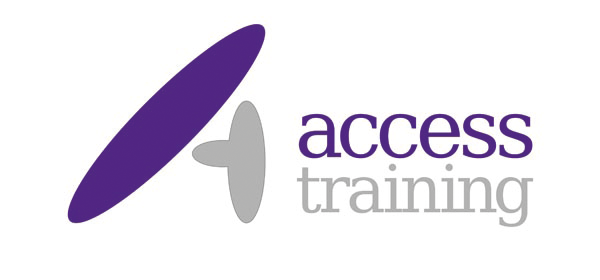By Callum Allison
Sir Robert Peel’s nine principles of policing, established almost two centuries ago, laid the foundation for ethical, community-focused policing. These principles, which emphasise public trust, cooperation, and minimal use of force, are increasingly relevant today as technology and AI reshape public safety, bringing both new opportunities and ethical challenges. At the recent “Smarter Cities, Safer Spaces” event in Sunderland, public safety strategist Dave Orford highlighted the delicate balance between protecting communities and safeguarding individual rights, with technology playing a pivotal role.
At MTC Training, we support professionals in tackling these challenges by offering courses that merge technical expertise with ethical principles. Reflecting on Peel’s ideals, we see how responsible technology use in cybersecurity can reinforce these values, bridging timeless principles with modern security needs.
The Relevance of Peel’s Principles with Technology and AI
- Preventing Crime Rather Than Reacting to It
Peel’s first principle stresses proactive crime prevention. Today, AI and machine learning make this more achievable, as predictive analytics can identify and flag risks before they materialise. However, there are challenges—predictive systems can misinterpret behaviours as potential threats, risking overreach and bias. Courses like Certified Ethical Hacker (CEH v13) train professionals to use Detective Controls, with modules on Footprinting and Reconnaissance and Vulnerability Analysis that equip them to detect risks early and implement proactive security measures. This alignment with Peel’s ideal of pre-emptive safety ensures that organisations can prevent crime responsibly while respecting privacy.
2. Public Approval as the Foundation of Police Power
Public trust is crucial for effective policing, a truth that also applies to cybersecurity, especially as surveillance tools become more pervasive. For example, facial recognition systems can strengthen security, yet they risk eroding public trust if applied without consent or clear boundaries. Courses like CompTIA Cybersecurity Analyst (CySA+) teach security professionals about Managerial Controls, helping them to implement privacy-conscious policies and clearly communicate data retention practices. This transparency fosters trust, ensuring that digital security respects public approval as Peel envisioned.
3. Securing Public Cooperation Through Mutual Respect
Peel believed that respect fosters cooperation—a principle that is increasingly relevant as community-centred digital tools, such as IoT sensors, become more prevalent in smart cities. However, these tools must be deployed with transparency and clear boundaries to avoid public concerns around data privacy. The CySA+ course prepares professionals to evaluate these systems, applying Directive and Managerial Controls to communicate openly with the public and foster trust. By understanding and addressing data usage concerns, cybersecurity experts can encourage public cooperation, honouring Peel’s emphasis on mutual respect.
4. Minimising the Need for Physical Force
Minimising force is a principle that resonates with today’s shift towards digital-first solutions. Cybersecurity analysts trained through CEH v13 can detect system vulnerabilities remotely, allowing organisations to address digital threats preemptively. This use of Preventative Controls means potential risks are managed without disruptive intervention. However, over-relying on automation may cause overlooked threats. MTC’s approach combines technology with human oversight, ensuring that cyber controls maintain operational safety while respecting Peel’s principle of minimal force.
5. Earning Public Approval Through Impartiality, Service, and Courtesy
Impartiality remains crucial to building public trust, and in digital security, this principle translates into applying consistent standards across all organisational levels. For instance, email security scans should protect against threats equally across all roles. Courses like CompTIA Security+ instil a commitment to Operational Controls, equipping professionals to enforce fair, consistent security policies. However, automated systems may inadvertently introduce biases. By prioritising transparent, impartial security measures, cybersecurity professionals ensure fair service, upholding the public’s trust.
6. Using Physical Force Only When Absolutely Necessary
Peel’s principle of limited force is mirrored in cybersecurity practices, where disruption is minimised through precise containment of threats. In ransomware scenarios, a broad shutdown might be disruptive; instead, CySA+ training enables professionals to isolate affected areas using Corrective Controls, allowing operations to continue safely. Although selective containment minimises operational impact, it requires careful decision-making to ensure thorough threat elimination. This approach aligns with Peel’s call for restrained intervention, maintaining both safety and efficiency.
7. Police as Part of the Community
Peel’s idea that “the police are the public and the public are the police” aligns well with the modern concept of shared responsibility in digital safety. Effective cybersecurity relies on employees actively recognising and reporting risks. Training in CEH v13 empowers professionals to build “security champion” networks within their teams, instilling a community mindset. By training team members to identify phishing or security threats, professionals create a cybersecurity culture that is collaborative and community-focused, reflecting Peel’s principle.
8. Clear Boundaries Between Policing and Judicial Functions
Peel emphasised that policing duties should remain distinct from judicial functions. Similarly, cybersecurity teams should focus on protection without engaging in punitive roles, which can undermine trust and neutrality. Courses like CISM reinforce the use of Directive Controls, teaching professionals to document and report security incidents without taking disciplinary action. This boundary is vital to maintaining trust within an organisation, ensuring that security teams remain focused on protection, as Peel advocated.
9. Judging Policing Efficiency by the Absence of Crime
Peel argued that effective policing is best measured by the absence of crime. In cybersecurity, this translates to the quiet success of preventing attacks and thwarting threats before they cause disruption. Training in CISSP helps professionals to implement Technical Controls, risk management, and monitoring, which reduce incident rates and improve response times. This proactive approach allows security measures to operate unobtrusively, reflecting Peel’s vision of maintaining peace and order without overt presence.
Training for the Future of Public Safety
At MTC Training, we offer education that combines technical skills with ethical grounding, reflecting Sir Robert Peel’s enduring values. Through courses like Certified Ethical Hacker (CEH v13) and CompTIA Cybersecurity Analyst (CySA+), we prepare professionals in both proactive and reactive cybersecurity tactics. By blending offensive and defensive skills, our programmes help create cybersecurity experts who respect privacy while protecting against threats.
Explore our upcoming courses and discover our full range of programmes on MTC Training’s website. Together, we are building a future where technology, ethics, and community collaboration form the foundation of public safety in the digital age.
Upcoming Course Dates:
- CompTIA Security + – MTC Training: 17–21 March 2025
- CompTIA Advanced Security Practitioner (CASP+): Please call for dates
- CISM Certified Information Security Manager: Please call for dates
- CISSP Certified In System Security Professional Exam Prep: Please call for dates
- Cybersecurity Analyst (CySA+): 13–17 January 2025
- CEHv13 – Certified Ethical Hacker 10–14 February 2025


